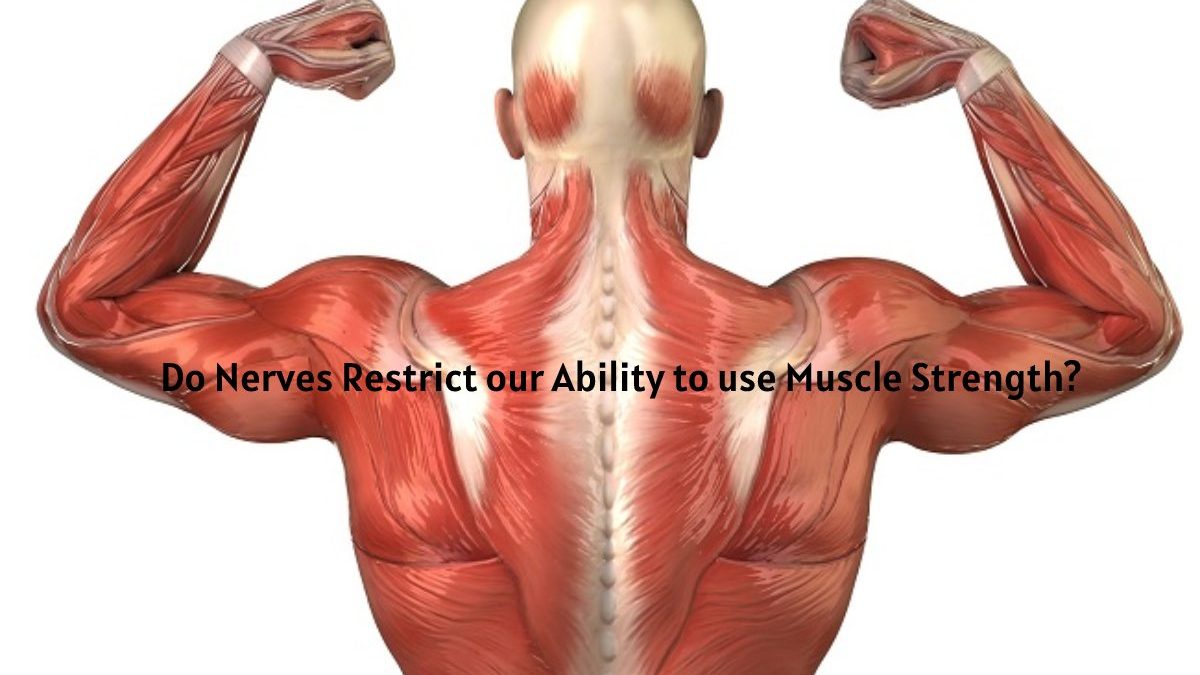Table of Contents
Introduction
Muscle Strength – our brains, not our bodies, determine when we should stop making the physical effort or using our muscles in one way or another, and this happens through pain and stress, restricting the brain’s physical strength and using powers to avoid harming the human body since the primitive man went on long distances of hunting, long limbs and fur-free skin.
And the ability to sweat to regulate body temperature has begun to evolve to make it easier to adapt to harsh environmental conditions. But this does not mean that physical skills are unlimited.
For hundreds of years, men and women have remained challenging their resilience at some of the extreme sporting events that have taken place in the cruellest areas.
How does the mind control Muscle Strength?
The nervous system mediates muscular activity and helps connect us to the environment around us.
vertebrate muscles remain divided into three categories:
smooth muscles, which control the digestive system and other internal organs.
Skeletal muscles or planned muscle tissue regulate the body’s movement relative to the environment.
The heart muscle whose properties remain mediated by smooth and structural muscles.
Each force consists of individual fibres, and the neurotic may feed more than one muscle fibre.
Neuromuscular conductivity is the chemical clamp, where the motor neuron’s ureter meets muscle fibres.
Each acetylcholine bone muscle remains excreted in the neuromuscular conductor, stimulating muscle constriction.
How to reach hysterical power?
Can a mother in that urban legend lift a car to save her stuck son? Maybe. As dangerous and life-threatening situations seem to add to us, more power remains added.
Muscle constriction controls our movements by sending signals mediated by muscle nerves. Our bodies use the same amount of motor units in muscle nerves during our daily activities, trying to use as few as possible. According to the action exerted, our muscles evolved to use a certain amount of nerves. The power we need to lift a glass of water is not the same as the one we use to lift a 2.5 kg box;
Research indicates that the proportion of muscle mass working during a rigorous exercise is as high as 60%, and dr. Zatorski of the University of Pennsylvania says that this percentage is as high as 80% in weightlifters.
Do superhumans exist?
Lydia Angio, about 152 cm tall in Quebec province, Canada, fought a polar bear to protect her son, who was then an ice hockey player.
That same year, a man named Tim Boyle saw a Chevrolet Camaro run over a cyclist trapped under its wheels, running into the accident and lifting the car enough to rid the victim of under its wheels. There are dozens of these heroic events where people who look like ordinary people do extraordinary work in challenging situations.
Does the brain limit the strength of the body and use muscles to avoid injury?
If we use our muscles to the maximum or exceed it during exercise, we may risk tearing muscle tissue, tendons, ligaments and broken bones. It is because our brains constantly monitor our bodies to keep them from situations that may harm them. Therefore, our bodies have inhibitory feedback rings that prevent our muscles from generating maximum strength.
psychological mechanism; pain and stress:
humans develop to feel pain and agony long after physical activity.
Previous experiences prevent us from lifting something that we think is too heavy in normal circumstances, such as a car. If our bodies had not seemed to be begging us to stop, we could have been more robust or more durable. But then we will hurt ourselves.
Muscle stress for more than 20 years has remained limited to physiological factors. Archibald Vivian Hill, Nobel laureate in physiology in 1922, concluded that the body’s ability to distribute oxygen to muscles is the restricted factor in exercise, so the more blood flow to the muscles, the greater the rate of strength that can remain achieved during training.
The power of the mind to Use Muscle Strength:
Our brains stand unconsciously in the way of our bodies to prevent us from surrendering to the limit.
“I’ve always had to practice hard physically, but I’m always sure that my mind, not just my strength, helps me get past the most difficult. And life-threatening situations,” says Richard parks, the first to climb the world’s highest mountain and reach the three poles, north and south. and Everest in seven months.
Professor sam markers of the university of kent believe that athletes push their strengths due to a conscious mechanism of their individual perception of over-stress and overperformance and give themselves the comfort needed to regain the ability to try again.
Many studies indicate that athletes who pass through their mental and physical abilities achieve a 120% greater improvement in their physical skills than 40% for those who only pass through their physical skills.
Does strength depend on more than muscle alone?
Physically we are considered weaker than animals of our size, including monkeys (our close relatives).
However, despite the lack of fibre and Magars in our muscular structure, it allows us to reach great strength. And above all, resistance. So let’s know if the man is more vital than expected or not? We must monitor him under difficult circumstances when adrenaline increases and his survival instinct is activated.
We need to use tools rather than rely on our muscle strength and lack of experience to use our force in their raw form. And our mentality and unwillingness to go beyond pain scenarios limit our ability to show the tremendous power we retain.
READ MORE:- Foods that Cause Energy Level To Drop

